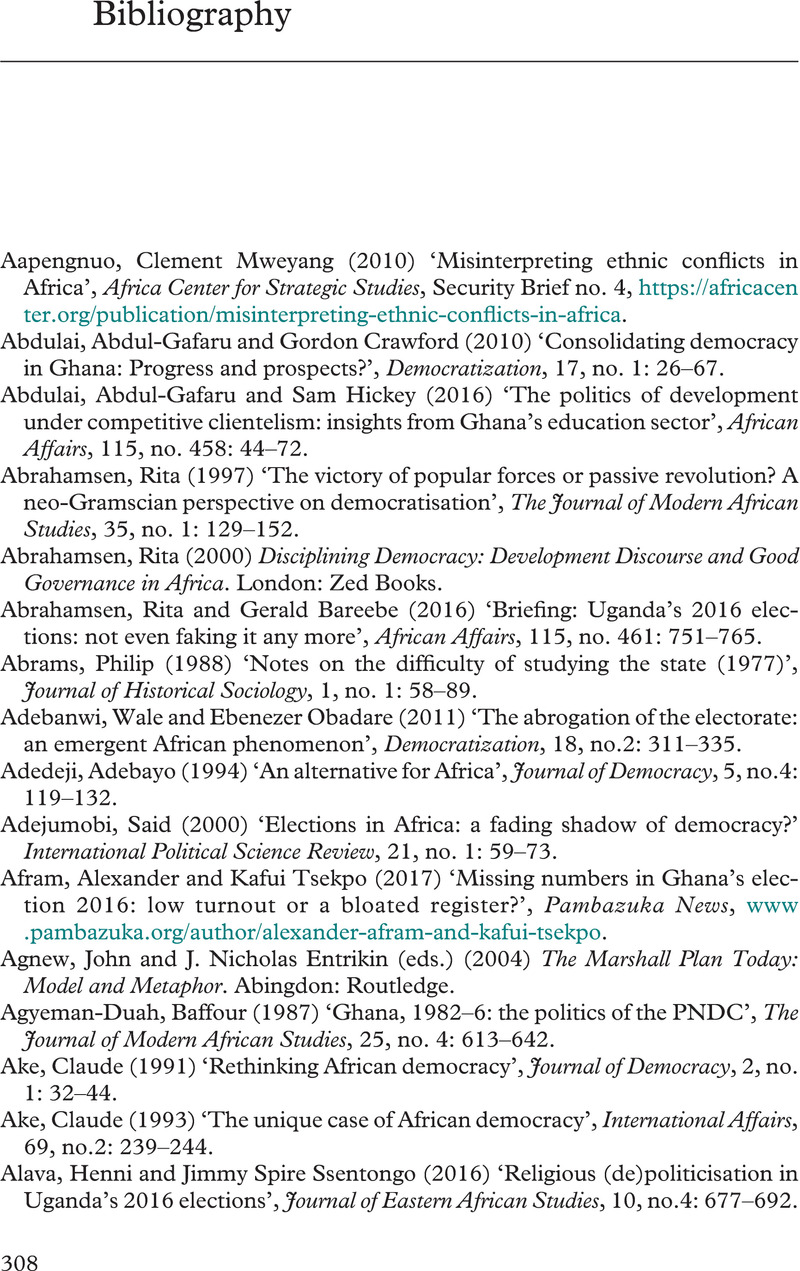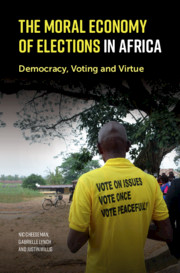Book contents
- The Moral Economy of Elections in Africa
- The Moral Economy of Elections in Africa
- Copyright page
- Dedication
- Contents
- Figures
- Tables
- Acknowledgements
- Abbreviations and Glossary
- Introduction: Writing African Elections
- 1 Towards a Moral Economy of Elections in Africa
- 2 Elections, States and Citizens
- Part I Promoting Civic Virtue
- Part II The Moral Economy in Action
- Appendix 1: Research Methods
- Bibliography
- Index
- References
Bibliography
Published online by Cambridge University Press: 15 December 2020
- The Moral Economy of Elections in Africa
- The Moral Economy of Elections in Africa
- Copyright page
- Dedication
- Contents
- Figures
- Tables
- Acknowledgements
- Abbreviations and Glossary
- Introduction: Writing African Elections
- 1 Towards a Moral Economy of Elections in Africa
- 2 Elections, States and Citizens
- Part I Promoting Civic Virtue
- Part II The Moral Economy in Action
- Appendix 1: Research Methods
- Bibliography
- Index
- References
Summary

- Type
- Chapter
- Information
- The Moral Economy of Elections in AfricaDemocracy, Voting and Virtue, pp. 308 - 347Publisher: Cambridge University PressPrint publication year: 2021



